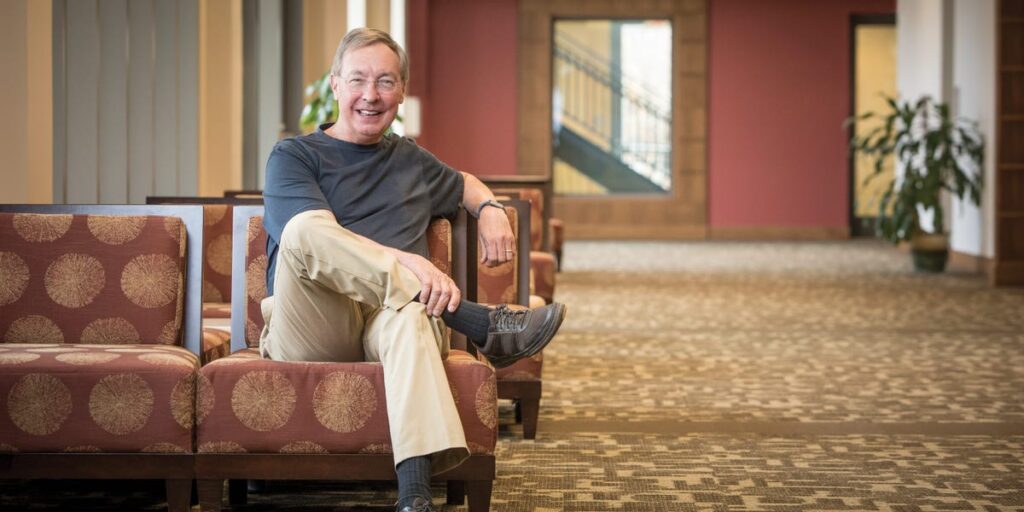Call it the “college or Chipotle” dilemma: Ted Dintersmith says schools are giving students two bad options — overpriced degrees or low-wage work — while AI is taking over the real jobs in between.
Dintersmith, a former venture capitalist turned education reformer who has toured classrooms in all 50 states, said the US education system is “not just outdated, it’s harmful.”
In an interview with Business Insider, he said schools are churning out graduates who are essentially “flawed, expensive versions of ChatGPT” — trained to memorize, recite, and follow rigid instructions instead of developing skills machines can’t replicate.
He warns that schools are setting up Gen Z for a rough landing in the job market by training students to master tasks that machines already do better.
“In many jobs, two or three people who are good at AI will replace 20 or 30 who aren’t,” he said. “If the essence of school is pushing kids to follow distantly in the footsteps of AI, those kids are in for a life of hurt.”
What he believes schools should do differently
Dintersmith said it doesn’t have to be this way.
He pointed to “bright spots” — schools that emphasize real-world projects, career-based learning, and purpose-driven mentorship.
His new education documentary, “Multiple Choice,” features the Emil and Grace Shihadeh Innovation Center in Winchester, Virginia.
The school requires every student to pair traditional academics with a hands-on vocational track — whether in carpentry, welding, health sciences, or other skilled trades.
Dintersmith said the goal is to give teenagers practical experience before they graduate so they can decide whether to pursue college or enter the workforce immediately.
But those programs remain the exception, Dintersmith said.
Instead, US education policy still prizes math and reading test scores, he said, while sidelining skills like critical thinking, fact-checking, and collaboration.
He said the solution starts with changing what schools measure and reward. Instead of prioritizing standardized test scores, he said, schools should give students chances to pursue projects that build purpose, creativity, and problem-solving skills.
He offered three practical steps for educators:
- Lean into AI, don’t fear it. Let students experiment with the tools and use them to create extraordinary work, he said.
- Celebrate career-based learning. Destigmatize trades like plumbing, electrical work, and HVAC — fields that require creativity and interpersonal skills, and remain largely safe from automation.
- Push back on failed accountability metrics and challenge policies that force schools to focus narrowly on math and reading scores at the expense of real-world skills.
His advice for students
For young people about to graduate into a shifting labor market, Dintersmith’s guidance is blunt: “Either get good at AI or get out of its way.”
He expanded on that warning in his coming book, “The Aftermath,” which is released in December.
In it, he argues that schools waste thousands of hours on math concepts most adults never use while failing to teach the kind of math literacy needed to evaluate data and thrive in an AI-driven economy.
Dintersmith said that this isn’t just an economic issue but a societal one.
He said the moment calls for a “D-Day mindset,” adding that good school decisions could make AI “an enormous enhancement to economic development and growth.”
But if schools keep failing, as he put it, millions of young adults will enter adulthood without clear job prospects — a recipe, in his words, for “civil society’s collapse.”
“We need to be thinking about this the way Winston Churchill and Dwight D. Eisenhower were thinking about D-Day, right?” he said.
“If we don’t think this right in the immediate future, the world as we know it is going to disappear.”
Read the full article here


